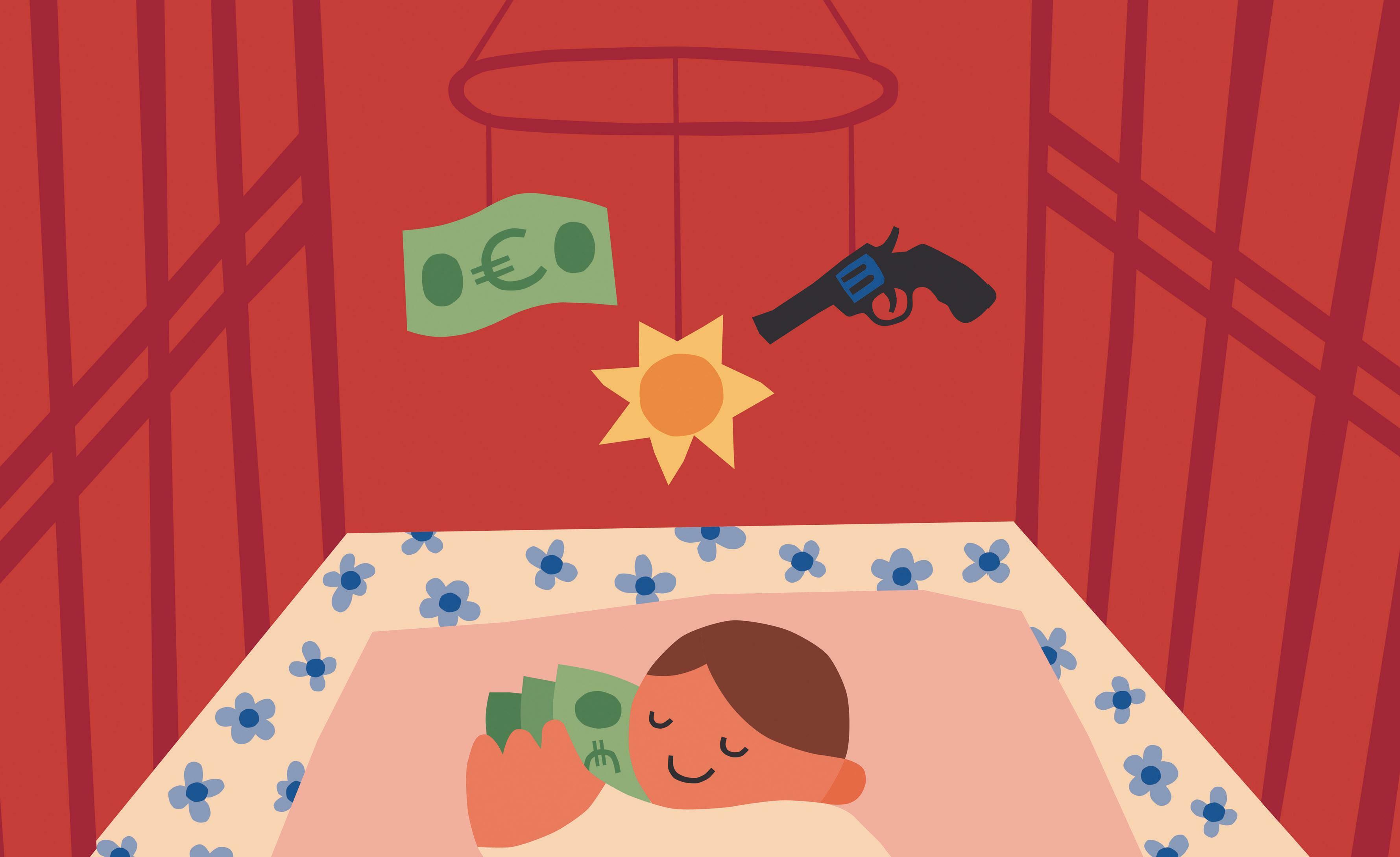
BEFORE DAWN ON A JUNE MORNING in 2010, police burst through the high security gates of a palazzo belonging to a notable mafia family on the edge of a small town in Calabria. As agents swarmed through the building, turning the place over, family members moved frantically to hide any evidence. Maria, the family's 12-year-old daughter, was given a page ripped from a notebook. It was a list of debts owing. She was told to hide it: "Put it in your knickers, they won't touch you." Her brother Cosimo, 14, watched in helpless rage as his father, mother, even his grandmother, were handcuffed and led out to the waiting police cars.
After the arrests, Cosimo was the only male family member outside prison, and it became his responsibility to collect money for the lawyers' fees. He was a baby boss with his own driver, visiting local businesses who were on the family's books, and demanding payment with menaces. "He was recognised as the boss," says journalist Dario Cirrincione. "If he went to a bar in the village, older men would get up to greet him. People waited on him, drove him around, did anything he needed. This sort of treatment turns these kids into little kings." The Calabrian mafia, the 'Ndrangheta, is based on family groups in small towns along the coastline of Italy's toe. The area is littered with half-built factories, projects paid for by state development funds and abandoned once the 'Ndrangheta got its hands on the money. Since taking control of the port at Gioia Tauro on the west coast, the organisation has become one of the biggest importers of cocaine to Europe.
The authorities have made sweeping arrests over the past decade, and staged a series of maxi trials in reinforced bunkers, involving hundreds of defendants. But the family structure means the organisation is hard to dismantle. As fathers and grandfathers are serving life sentences, many in high-security jails, the younger members are starting their criminal careers ever earlier.
Esta historia es de la edición June 28, 2024 de The Guardian Weekly.
Comience su prueba gratuita de Magzter GOLD de 7 días para acceder a miles de historias premium seleccionadas y a más de 9,000 revistas y periódicos.
Ya eres suscriptor ? Conectar
Esta historia es de la edición June 28, 2024 de The Guardian Weekly.
Comience su prueba gratuita de Magzter GOLD de 7 días para acceder a miles de historias premium seleccionadas y a más de 9,000 revistas y periódicos.
Ya eres suscriptor? Conectar

No 298 Bean, cabbage and coconut-milk soup
Deep, sweet heat. A soup that soothes and invigorates simultaneously.

Cottage cheese goes viral: in reluctant praise of a food trend
I was asked recently which food trends I think will take over in 2025.

I'm worried that my teenage son is in a toxic relationship
A year ago, our almost 18-year-old son began seeing a girl, who is a year older than him and is his first \"real\" girlfriend.

BOOKS OF THE MONTH
A roundup of the best recent science fiction, fantasy and horror

Dying words
The Nobel prize winner explores the moment of death and beyond in a probing tale of a fisher living in near solitude

Origin story
We homo sapiens evolved and succeeded when other hominins didn't-but now our expansionist drive is threatening the planet

Glad rags to riches
Sarcastic, self-aware and surprisingly sad, the first volume of Cher's extraordinary memoir mixes hard times with the high life

Sail of the century
Anenigmatic nautical radio bulletin first broadcast 100 years ago, the Shipping Forecast has beguiled and inspired poets, pop stars and listeners worldwide

How does it feel?
A Complete Unknown retells Bob Dylan's explosive rise, but it als resonates with today's toxic fame and politics. The creative team expl their process-and wha the singer made of it all
Jane Austen's enduring legacy lies in her relevance as a foil for modern mores
For some, it will be enough merely to re-read Persuasion, and thence to cry yet again at Captain Wentworth's declaration of utmost love for Anne Elliot.